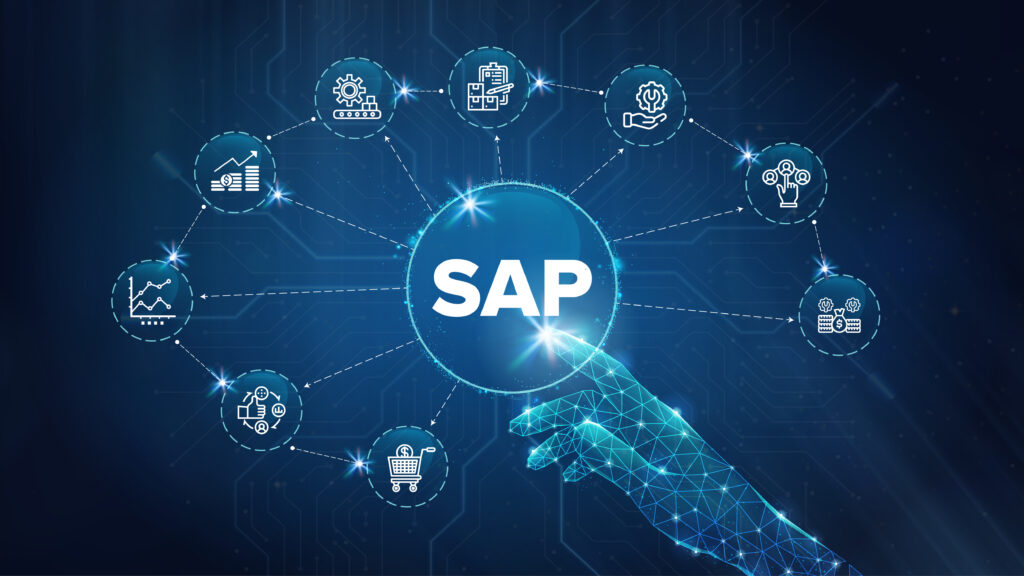
As business leaders strive to make their companies leaders in the GenAI Revolution, SAP has bundled many of its enterprise apps into the Cloud ERP Suite to help those customers rapidly and powerfully exploit the unified data insights with SAP’s Business AI solutions.
On SAP’s Q1 earnings call a few weeks ago, the company broke out financial results for a packaged set of applications under a name I had not seen SAP use in public before: the Cloud ERP Suite, encompassing financials, HCM, procurement, supply chain, and more. With a Q1 growth rate of 32% to $3.48 billion, the Cloud ERP Suite was clearly the primary driver of the overall cloud growth of 24% that SAP posted for the quarter (for more on that, please see my video analysis “SAP Rocks Q1“).
To understand more fully SAP’s strategy with the new Cloud ERP Suite, I spoke last week with chief revenue officer Scott Russell, who as a member of SAP’s Executive Board also oversees the Customer Success organization.
You can see my full 20-minute interview with Russell here, in which he offers a compelling view through the eyes of customers about how they’re seeing the need for fusing modern business processes powered by cloud applications to generate high-value data to fuel their GenAI initiatives.
In this article, I’ll offer a few key comments from Russell and encourage anyone who’s interested in how the world’s largest enterprise-applications provider is fusing those apps with GenAI to watch the full interview.
End-to-end processes and visibility. “The Cloud ERP Suite is the business suite of capabilities of an integrated portfolio that’s modular and it’s in the cloud and it allows for that unified platform,” Russell said. “For customers, that means it provides a more holistic and more unified and more organized way of being able to connect disparate parts of their business or processes that can sometimes be disconnected because they run on different applications or different systems, and being able to bring it together.”
The essential link to SAP Business AI. “When you think about generative AI and the ability to be able to exploit the data and the insights for a business, you need a suite of capabilities that is connected. And you also want the flexibility and the scalability and agility to manage your business processes, but you want to be able to have that unified view.”
The power and potential of Business AI. “Nine months ago, 12 months ago, even six months ago, customers were piloting, they were doing proofs of concepts, they were testing how the technology could potentially solve business problems — but now they’ve moved beyond that,” Russell said. “Now they’re looking for solutions, they’re looking for outcomes. They understand the power of the technology, but it needs to be matched with real benefits, real value, real outcomes. And what the customers are now saying, especially CEOs — I don’t think there’s a boardroom on the planet that hasn’t had a discussion about this — ‘How can this enabling technology help our business?’ And the expectation is clear. ‘SAP, you’ve got the most important data that runs our business. We’re moving to the cloud with you. How can we exploit that? And what are you bringing to us that is out of the box, as well as the unique insights that we might want to create ourselves.’ That’s why we believe so strongly that we will be the market leader in Business AI. It’s not only because we’re focused on it, but it’s also because the customers are demanding this from us. And we’ve already got a great start with 27,000 SAP customers already using AI within their businesses.”
Helping customers “compete for tomorrow.” “And what we’re finding is when customers are moving to the cloud with SAP and they choose great capabilities such as RISE with SAP or GROW with SAP, they look at the suite of capabilities they need to be able to compete for tomorrow by having an enabling platform to be able to drive that,” Russell said. “So it’s both an immediate interest that we hear from customers but also building a future-proof foundation for them as well. And that’s why in Q1, our Cloud ERP Suite was growing at 32%, well above our overall cloud growth, and that just shows that customers are resonating with an enabling platform that’s modular in the cloud.”
Ask Cloud Wars AI Agent about this analysis
Competing — and winning — in an unpredictable world. “And that isn’t just with the competition of today, but it’s the competition that’s coming that you’re not aware of. As business leaders, we’re always looking around corners, we’re always wondering what’s coming in. And sometimes, and especially with technologies such as generative AI, you’re able to compete very quickly when suddenly you’ve got competitors that you don’t even know about,” Russell said. “So having an agile, flexible, cloud-ready platform that gives them the insights from the data and connected to non-SAP data really does give them the platform of capabilities that allows them to compete, competing not only in getting their products to customers earlier, faster in the highest possible quality, but understanding the buying signals, the trends, the supply signals, the financial platforms, or even the sustainability insights, to be able to run your business more effectively.”
Final Thought
I have long admired SAP’s decision to unite Customer Success with Sales, which in the cloud business seems to be the ideal structure. Russell’s fixation on helping customers generate great business outcomes gives him a front-row seat on how and where GenAI is fitting into their plans for creating their own futures in an AI-powered world.
Armed with those insights, SAP has gone a bit back to the future with the Cloud ERP Suite, now offering customers a modular approach that they can tailor according to their needs to weave GenAI seamlessly and powerfully into every facet of their operations.
To get the full picture on SAP’s strategy, you can see my full video interview with Russell here.










